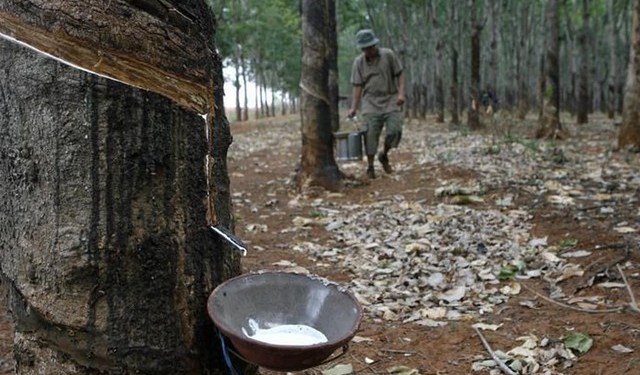Asian rubber markets settled mostly higher last week amid a weakening in the Japanese yen against the dollar, but investor’s action for profit taking and high rubber stocks in Qingdao had curbed NR prices to move up further. Meanwhile, a better-than-expected US employment report as well as an improvement in Japanese manufacturing PMI in January 2013 lent support for NR prices at certain levels during the week.
IRCo’s DCP rose to 317.96 US cents/kg on Friday, 4.48 US cents/kg (1.43%) higher than its initial price at 313.48 US cents/kg on Monday. Meanwhile, Thai RSS-3 slipped a bit to 325.13 US cent/kg on Friday from 326.17 US cents/kg on Monday, or lost 1.04 US cents/kg (0.32% lower). Thailand STR-20 also dropped slightly to 301.20 US cents/kg on Friday, or down 1.97 US cents/kg, or 0.65% lower than its settlement price at 303.17 US cents/kg on Monday. In the meantime, Malaysia SMR20 as well as Indonesia SIR20 had experienced gains during the week. Indonesia SIR20 rose to 308.00 US cents/kg on Friday, or 5.00 US cents/kg (1.65%) higher than its settlement price at 303.00 US cents/kg on Monday. Similarly, Malaysia SMR20 also settled higher at 320.00 US cents/kg on Friday, or 9.00 US cents/kg (2.89%) higher than its settlement price on Monday at 311.00 US cents/kg.
The benchmark rubber contract for June delivery on TOCOM settled at 323.50 yen/kg on Friday, 9.80 US cents/kg or 3.12% higher than its settlement price at 313.70 yen/kg on Monday. In addition, the Shanghai Futures Commodity Exchange for May delivery also finished the week higher at 26,290.00 Yuan/ton, or 705.00 Yuan/ton (2.76%) higher than its settlement price at 25,585.00 Yuan/ton on Monday. Furthermore, AFET RSS-3 for August delivery rose to 106.50 THB/kg on Friday, or gained 3.90 THB/kg (3.80% higher) compared with its initial price at 102.60 THB/kg on Monday.
NR supply is expected to remain tight in the coming week as main rubber production regions inIndonesia are disrupted by the rainy season, whereas the rain has stopped in most parts of rubber planting areas in southern Thailand and northern Malaysia.
Source: IRCo



























